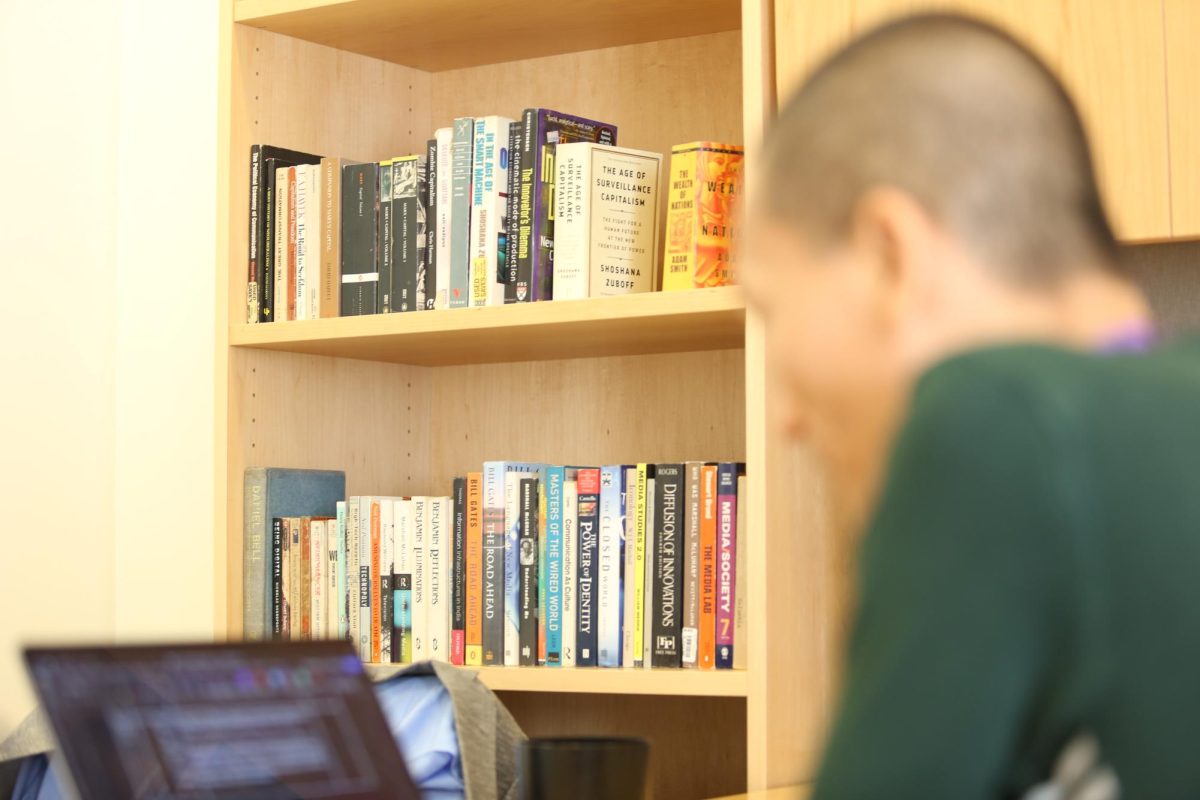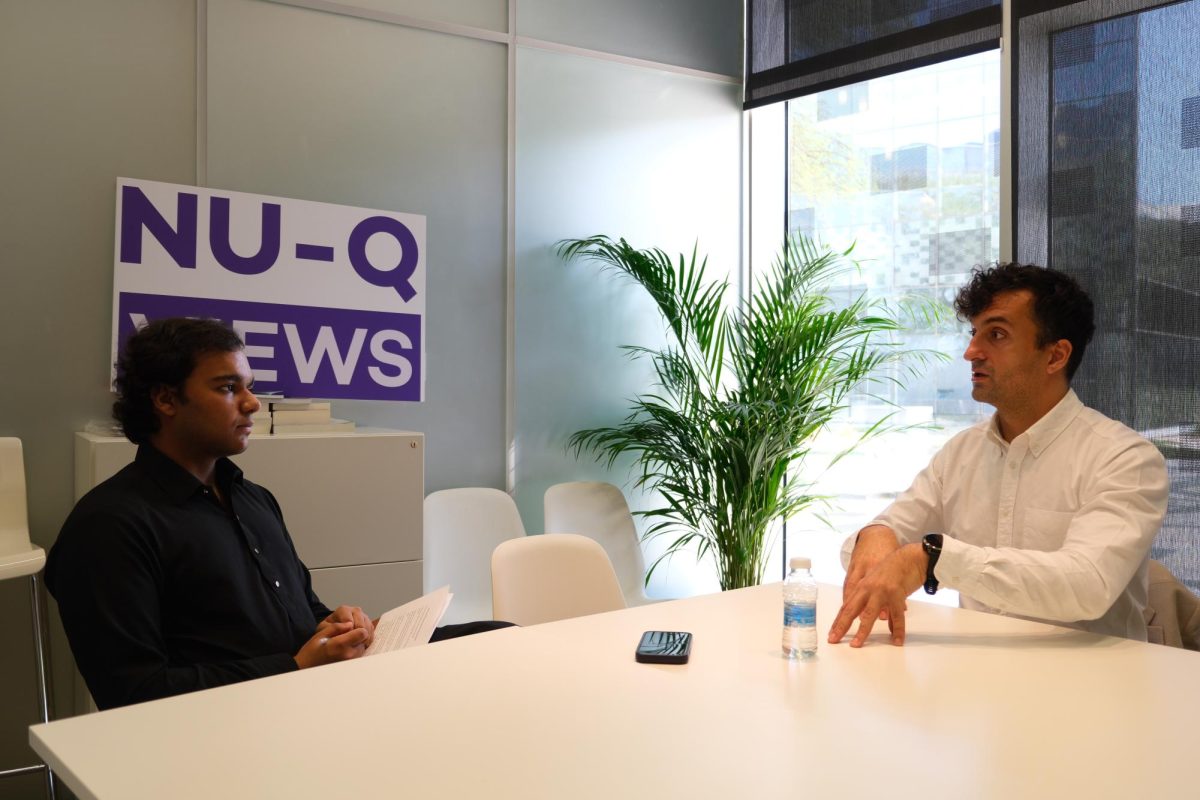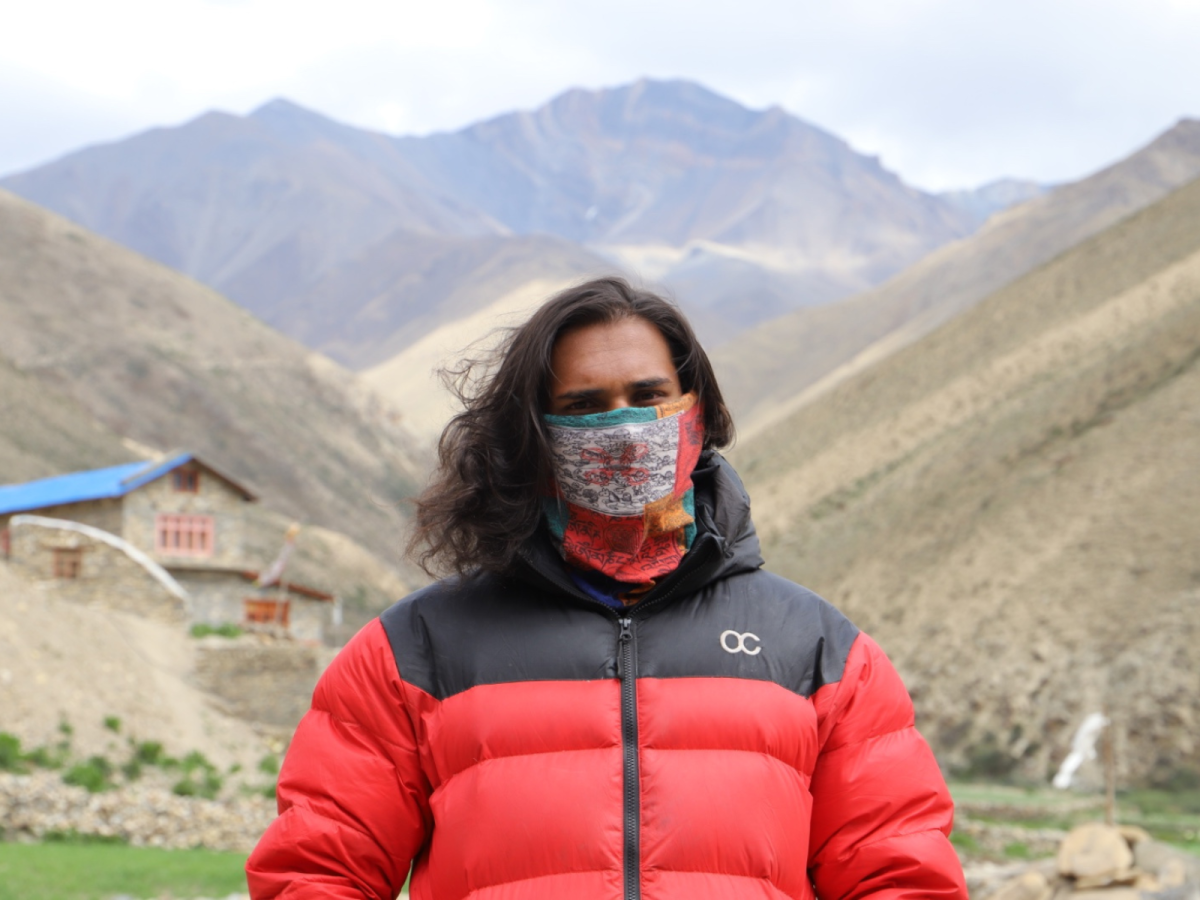Riding his bicycle through the streets of Kathmandu, Harsha Man Maharjan charted a course through the city, eagerly pursuing events that could mold his intellectual journey. From one conference to another, Maharjan’s quest for knowledge propelled him forward.
“I didn’t know about the world outside Kathmandu,” he says, reflecting on the beginnings of his intellectual curiosity and desire to explore beyond familiar horizons. “I wanted to know more about it.” Today Maharjan is continuing that journey at Northwestern University in Qatar as a postdoctoral fellow at the Institute for Advanced Study in the Global South.
At the time of his wanderings through the streets of Kathmandu, though, little did Maharjan expect that they would lead him to a pivotal discovery: Martin Chautari. It was his stumbling upon this Nepali non-profit NGO, which is dedicated to public dialogue and intellectual growth, in the year 2000 that set Maharjan on a transformative journey.
“All the influential figures I used to listen to on the radio often participated in discussions at Martin Chautari, so naturally, I became a follower,” he recalls.
What began as a chance encounter sparked a lifelong passion for engaging with ideas and the community that still drives Maharjan’s work today.
In 2001 Maharjan became the administrative assistant at Martin Chautari and immersed himself in bibliographic work, marking the genesis of his deep-seated passion for research. At that time, he delved into exploring contemporary academic discourse affecting Nepali society, from media reform to the representation of a pop star in Nepali print media.
“I was curious why Nepali media embraced digitalization so rapidly, especially when it seemed like the rest of the Global South wasn’t necessarily heading in that direction,” Maharjan says.
Maharjan’s curiosity fueled his research interests as he pursued a master’s degree in journalism and mass communication at Tribhuvan University in Nepal. His longtime fascination with media evolved from traditional to digital platforms – much like the world around him – and his gaze shifted to studying the rapid digital transformation underway in Nepali newspapers.
This question would later take Maharjan to Japan, where he studied the forces influencing Nepal’s distinctive media landscape as a part of his Ph.D. studies in Digital Transitions and the Making of Online Newspapers in Nepal at Kyoto University, which he completed in 2019.
However, seeking answers proved an uphill battle. “It was quite a struggle,” Maharjan recalls of the absence of an archive and data related to Nepal’s media shifts. Rather than discouraging him, though, the challenge strengthened his commitment to researching Nepal’s understudied digital landscape.
Upon returning home, Maharjan joined the faculty of Polygon College in Kathmandu with reform in mind. “The journalism courses taught in Nepal have not been updated for decades,” he says.
In his role as academic/research head, Maharjan says he “made every effort to motivate students to contribute to the scarce literature on Nepali media” by pursuing thesis projects on overlooked topics including the landscape of women journalists’ organizations, the use of traditional communications in modern times and the sustainability of community radios.

He also co-authored multiple books, including “Media Training: Evaluating Nepali Practices” and “Radio Network,” while editing three other volumes on civil society, magazines, and inclusive media. Maharjan’s scholarship has been published internationally in the Journal of Digital Media & Policy and the European Bulletin of Himalayan Research, as well as in the Nepali publications Studies in Nepali History and Society (SINHAS) and Media Adhyayan.
With each article he published, his drive to elucidate Nepal’s understudied media spheres only intensified. “I realized I needed to deepen my comparative understanding of the Global South to better contextualize the shifts underway in Nepali digital media,” Maharjan reflects.
A post on X, formerly known as Twitter, led Maharjan to a rather serendipitous career move, as he discovered NU-Q’s call for scholars to join the Institute for Advanced Study.
Though he was initially unfamiliar with NU-Q, the fellowship opportunity resonated with Maharjan, given his extensive research on digital policies and practices in Nepal and his knowledge of South Asian media.
As an IAS fellow, Maharjan focuses his scholarship on constructing a comprehensive understanding of digital identity cards and their adoption in Nepal while preparing to teach courses on Communication Technology and Society and Internet and Society.
Leaving Martin Chautari after two decades was difficult, but Maharjan remains guided by the promise of academic inquiry rather than attachment to place. “In NU-Q, there are scholars from all over the world,” he says. “I think I can collaborate with them to understand digital-identity systems in their countries better, enriching my research on Nepal.”







